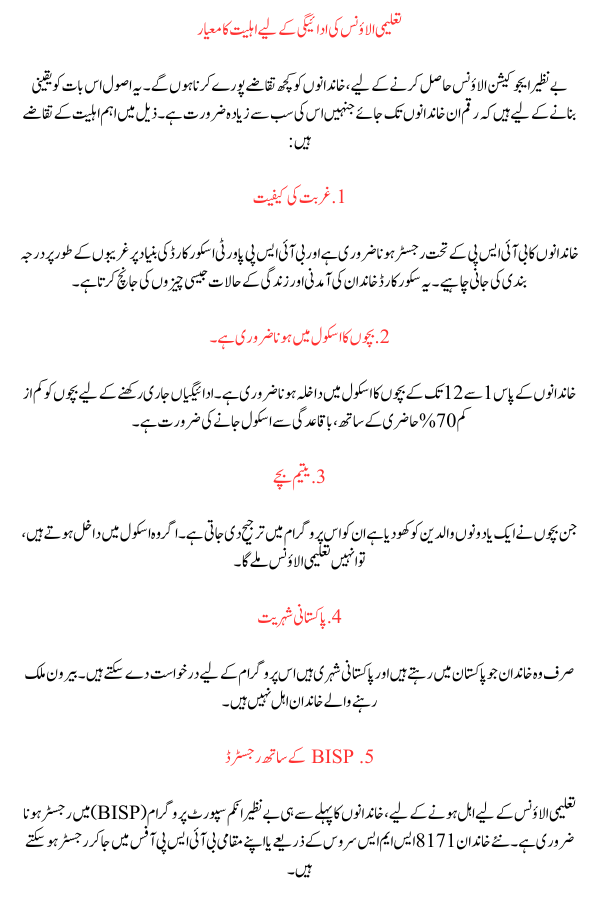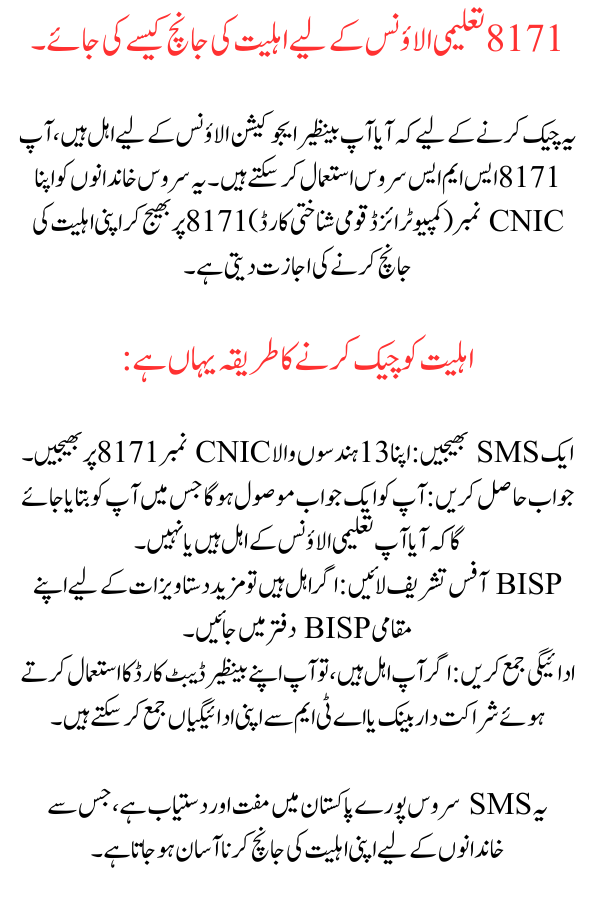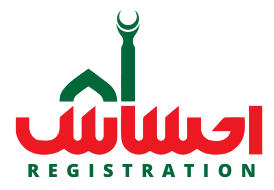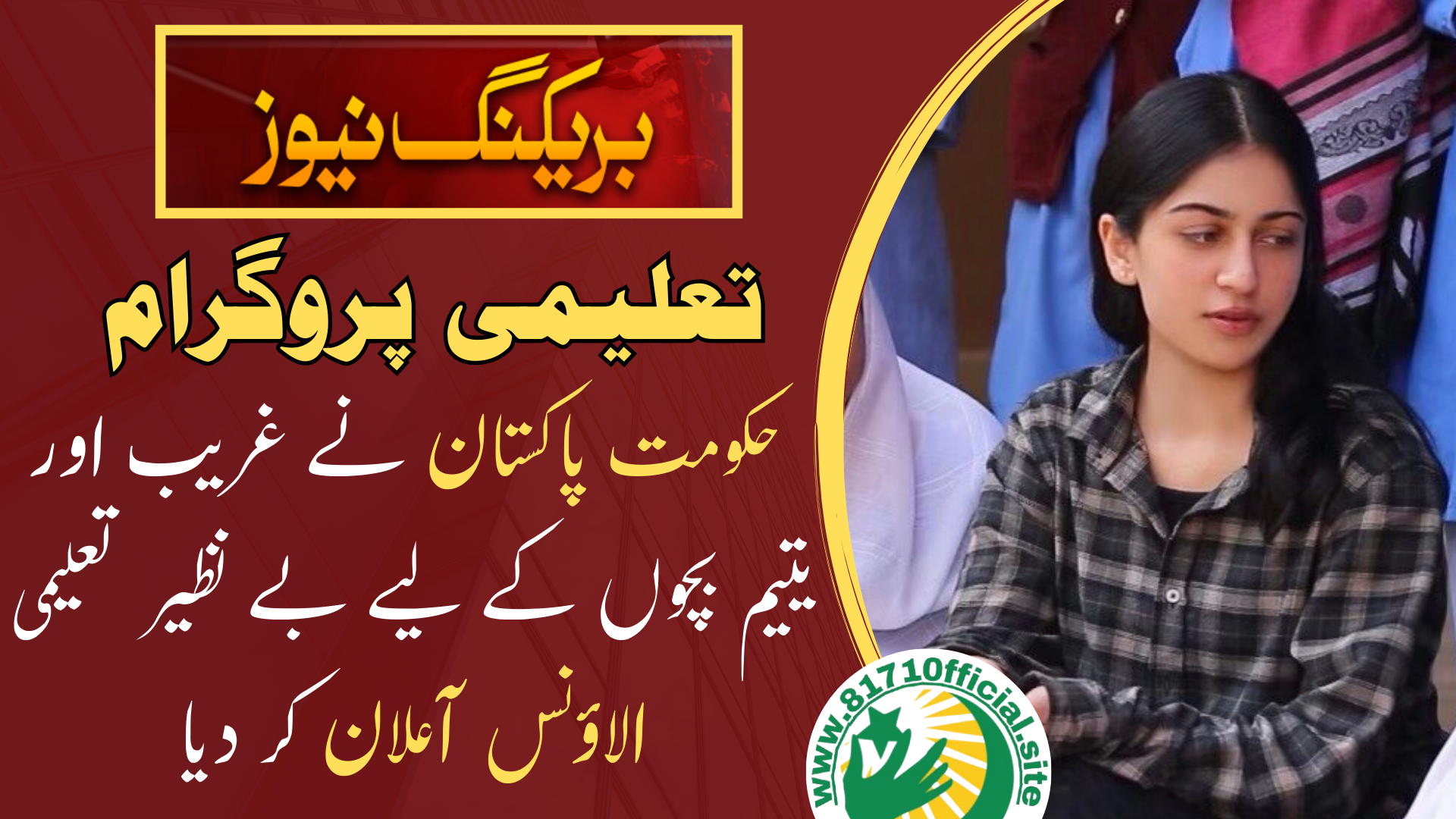Benazir Education Allowance for Poor and Orphaned Children
The Benazir Education Allowance is a program by the Government of Pakistan that helps poor and orphaned children go to school. This program, under the Benazir Income Support Program (BISP), provides financial aid to families so they can afford basic school needs like books, uniforms, and other study materials. The goal of this allowance is to make sure all children, especially those from poor families, get a chance to study and improve their future.
Here’s a quick overview of the Benazir Education Allowance:
| Program Name | Benazir Education Allowance |
|---|---|
| Start Date | Ongoing |
| End Date | No specific end date |
| Assistance Amount | Between PKR 1,500 – 3,000 depending on school level |
| Application Method | Both online (via BISP website) and offline (local BISP offices) |
| Target Group | Poor and orphaned children |
Orphaned and Poor Children Receiving the New Installment
The Benazir Education Allowance payments for the latest installment are being given to eligible families. As of October 2024, many families of orphaned and poor children have already received their funds. These payments help cover school expenses such as uniforms, books, and other essentials. The payment amount varies based on the child’s grade level, with primary school students receiving around PKR 1,500 per quarter and older students receiving up to PKR 3,000.
Parents are advised to keep their BISP information updated to avoid delays in future payments.
Also Read : Enrollment Procedure in Benazir Nashonuma Program
Eligibility Criteria for Education Allowance Payment
To receive the Benazir Education Allowance, families must meet certain requirements. These rules are in place to make sure the money goes to families who need it the most. Below are the main eligibility requirements:
1. Poverty Status
Families must be registered under BISP and be classified as poor based on the BISP Poverty Scorecard. This scorecard checks things like family income and living conditions.
2. Children Must Be in School
Families must have children enrolled in school from grades 1 to 12. Children need to attend school regularly, with at least 70% attendance, to continue getting payments.
3. Orphaned Children
Children who have lost one or both parents are prioritized in this program. If they are enrolled in school, they will receive the education allowance.
4. Pakistani Citizenship
Only families who live in Pakistan and are Pakistani citizens can apply for this program. Families living abroad are not eligible.
5. Registered with BISP
To qualify for the education allowance, families must already be registered with the Benazir Income Support Program (BISP). New families can register through the 8171 SMS service or by visiting their local BISP office.

How to Check Eligibility for the 8171 Education Allowance
To check if you qualify for the Benazir Education Allowance, you can use the 8171 SMS service. This service allows families to check their eligibility by sending their CNIC number (Computerized National Identity Card) to 8171.
Here’s how to check eligibility:
- Send an SMS: Send your 13-digit CNIC number to 8171.
- Get a Reply: You will receive a reply telling you if you are eligible for the education allowance or not.
- Visit BISP Office: If eligible, visit your local BISP office for any further documentation.
- Collect Payment: If you are eligible, you can collect your payments from a partner bank or ATM using your Benazir Debit Card.
This SMS service is free and available across Pakistan, making it easy for families to check their eligibility.
Also Read : 8070 Kisan Card Registration Through SMS

Payment for Education Allowance
Once a family is found eligible, the payments are given every three months. The payment schedule is as follows:
- Payments are made four times a year, at the beginning of January, April, July, and October.
- Families will receive an SMS notifying them when their payment is ready to be collected.
- Payments can be collected using the Benazir Debit Card from partner banks or ATMs.
In areas where banks are far away, mobile banking units or local post offices may be used to disburse the payments. It’s important to remember that children must continue attending school to keep receiving the payments. If school attendance drops, payments may stop.
Conclusion
The Benazir Education is a helpful program for poor and orphaned children in Pakistan. It gives families the financial support they need to send their children to school and improve their future. By helping children stay in school, the government is investing in a brighter and more educated future for the country.
Families should keep their information updated in the BISP system and regularly check their eligibility through the 8171 SMS service. This allowance not only helps families financially but also encourages more children to complete their education and improve their lives.


